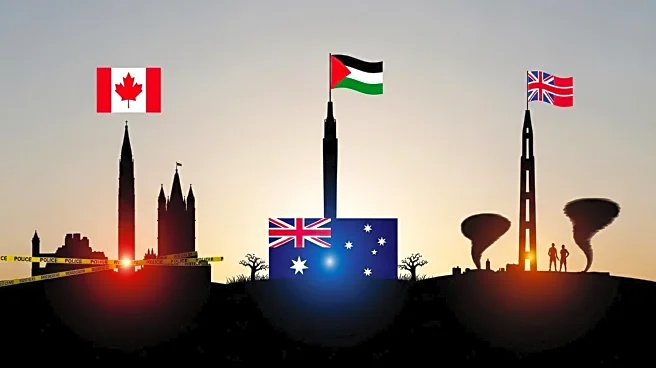What's Happening?
Canada, Australia, and Britain have announced their recognition of a Palestinian state, marking a significant diplomatic shift. This decision comes nearly two years after the October 7 massacre by Hamas, which has been a point of contention in Israeli-Palestinian relations. British Prime Minister Keir Starmer emphasized that this recognition is not a reward for Hamas, which he labeled a terrorist organization. Canada and Australia echoed similar sentiments, highlighting the humanitarian issues in Gaza and the aspirations of the Palestinian people for statehood. The recognition by these countries, including three G7 members, represents a major diplomatic gain for Palestine, although the United States, Japan, Germany, and Italy have not followed suit.
Why It's Important?
The recognition of a Palestinian state by Canada, Australia, and Britain could have significant implications for international diplomacy and Middle Eastern politics. It signals a shift in the stance of major Western countries, potentially influencing other nations to follow suit. This move may increase pressure on Israel regarding its policies in the region, particularly concerning settlement expansion and humanitarian issues. The recognition also highlights the growing divide within the G7, as not all members are aligned on this issue. For Palestine, this represents a diplomatic victory, potentially bolstering its position in future negotiations.
What's Next?
As more countries are expected to recognize Palestine during the UN General Assembly, the international community will be watching closely for reactions from Israel and its allies. The recognition could lead to increased diplomatic efforts towards a two-state solution, although it may also provoke tensions with countries opposing this move. The situation remains fluid, with potential for further developments in international relations and peace negotiations.











